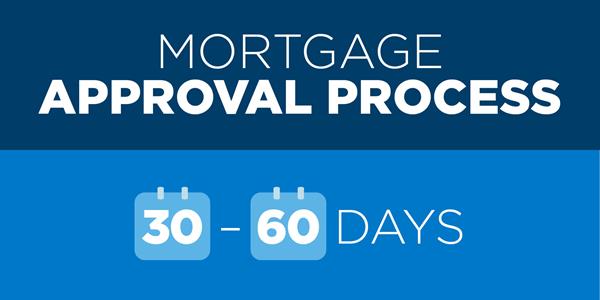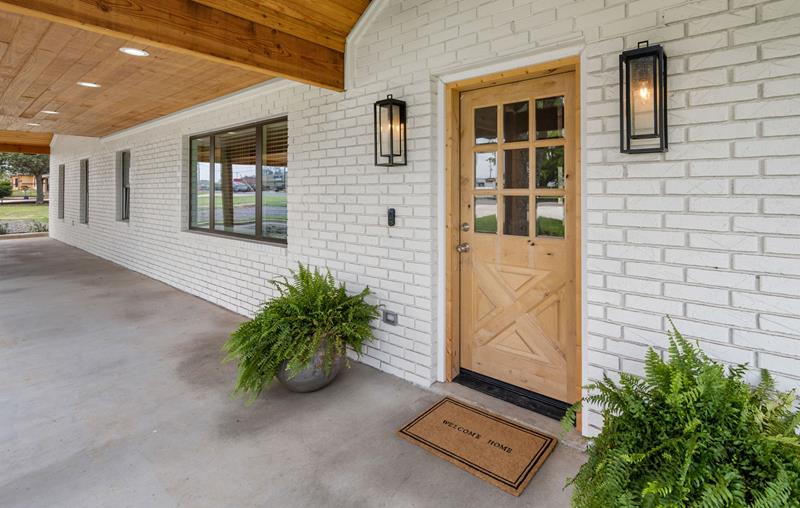Understanding the timeline for a home loan approval (and which factors could delay the process) can help you prepare for the homebuying experience.
When you’re ready to buy a home, it seems like your closing day can’t come soon enough. But even after you find a house, make an offer, and get the good news that your offer is accepted, you still have a few more tasks before you receive your new house keys.
But there’s great news: if you have a basic understanding of the mortgage approval process, how long it might take, and what factors might speed up the process, you are one step closer to a smooth, streamlined loan experience.
How Long Does the Mortgage Approval Process Take?
On average, the mortgage approval process takes 30 to 60 days — although it can be significantly shorter or longer, depending on the situation.
If you are pre-approved or credit pre-approved for a loan before you start the home shopping process, your mortgage could close in as little as two to three weeks after your offer is accepted on a home.

With a pre-approval in hand, you’ll likely have a smoother home shopping experience, and you can submit offers with confidence — knowing that a reputable mortgage lender has already assessed your financial situation.
Think of it this way: with a pre-approval, you and your lender are putting in more effort upfront — but that means that you’ll probably have a more streamlined, quick home loan process, as compared to a homebuyer who is not pre-approved.
What Could Delay My Mortgage Approval?
Whether you are pre-approved or not, the mortgage process can be delayed by a variety of factors. If you change jobs, have a change in your income, or even make a significant purchase (such as a car or furniture) during the approval process, the mortgage approval could be delayed or denied.
If the lender requests additional documentation during the loan approval and you don’t provide it in a timely manner, this can also significantly delay the loan closing.
Other delays to the mortgage process have to do with the property itself. If the home inspection uncovers a big problem, such as mold, structural issues, or other major safety concerns, these can push back the closing date until they are remedied. Issues with the appraisal can also cause delays; if the appraisal value doesn’t meet or exceed the property’s sale price, the loan process could be deterred.
Legal issues with the home title or deed (such as unpaid taxes or liens on the property) are another challenge that may delay a mortgage closing.
Also, contingency failures can put the mortgage approval behind schedule or even cause the financing to fall through entirely. For instance, if the buyer has a contingency that states they must sell their current property before purchasing their next home — and this doesn’t happen within the specified timeframe — the loan for their new home could be jeopardized. Another example of a contingency failing would be the buyer’s inability to secure homeowners insurance before the closing.
What Can I Do to Speed Up My Mortgage Approval Process?
Aside from getting pre-approved, there are a few things you can do to help the home loan process move along quickly, including:
Check Your Credit Score in Advance
Before you start the mortgage approval process, review your credit report to make sure there are no errors (this happens more frequently than you may think). More than one-third of American consumers found at least one mistake in their credit reports, according to a recent study by Consumer Reports. These errors can delay the loan process and even jeopardize your home loan approval. Another advantage of knowing your credit score is that it will help you narrow down which home loans you may qualify for — saving you additional time when you’re ready to choose a mortgage.
Be Completely Honest With Your Loan Originator and Their Team
When disclosing your financial information for the approval process, make sure you are transparent. Acknowledge any factors that may affect your loan approval, such as late credit card payments, additional streams of income, etc. This will help your processor and underwriting team move quickly through your financial information — without any “surprises” along the way.
Be Prepared to Provide Additional Documentation ASAP
Because the home loan process is unique to everyone, it’s likely that even the most prepared borrowers will need to provide an extra document or two in the middle of the journey. If your lender’s team asks for a document, be prepared to send it as soon as possible. (As a side note, make sure you choose a lender that enables you to securely and quickly upload documentation digitally — which will save even more time. At Waterstone Mortgage, we have a proprietary, all-in-one platform called Element, which allows our clients to do just that.)
Because the mortgage approval process is complex, it’s important to work with a trusted loan professional who can guide you through each step of the process, so you can avoid costly delays and get to the closing table on time.





